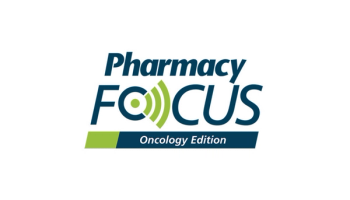
Identifying alterations in tumor genes has enabled medical oncologists to guide patients towards more specific therapies.


Identifying alterations in tumor genes has enabled medical oncologists to guide patients towards more specific therapies.

High tumor fraction after induction chemotherapy identifies a population with an unmet need who has low chances to benefit from immune checkpoint blockades.

Former and current smokers showed higher mortality from early-stage non-small cell lung cancer than never smokers.

Repotrectinib is a promising next-generation tyrosine kinase inhibitor under investigation for the treatment of ROS1-positive locally advanced or metastatic non-small cell lung cancer.

Adagrasib is a RAS GTPase family inhibitor with objective response rate in patients with certain types of locally advanced or metastatic non–small cell lung cancer (NSCLC).

Weight loss that began as far as 2 years before a lung cancer diagnosis was associated with a risk of cancer.

Specialty pharmacists—those caring for patients with serious, sometimes life-threatening conditions such as cancer or rheumatologic disease—are not immune from the ongoing labor crisis.

Durvalumab lowered the risk of death by 32% in patients with non-small cell lung cancer compared to chemotherapy alone.

Major pathologic response had a high association with increased recurrence-free survival rates.

But analysis does suggest a small increase in risk for individuals who used cigarettes and electronic nicotine delivery systems together.

The application is based on the PHAROS trial, which met its primary endpoint of objective response rate in patients with metastatic non–small cell lung cancer with a BRAF V600E mutation.

Experts note that pharmacists are well positioned to play a key role in precision oncology and molecular tumor boards.

Historically, there are many hard-to-treat mutations of non-small cell lung cancer.

Among patients with lung cancer, approximately 20% have the earliest stage of disease but are still dying of metastatic lung cancer within about 5 years.

Blinded arms of the study will continue to evaluate the combination therapy with docetaxel vs docetaxel alone, Merck says.

The treatment shows an acceptable toxicity profile and no new adverse events, according to results of analysis.

Osimertinib (Tagrisso; AstraZeneca) now has shown a statistically significant and clinically meaningful overall survival benefit in both the early adjuvant and late-stage metastatic settings.

Adding durvalumab to neoadjuvant chemotherapy to treat resectable early-stage non–small cell lung cancer did not increase complications and adverse events or comprise patients’ ability to undergo surgery versus chemotherapy alone.

Median overall survival was also 2 months less for patients with extensive-stage small cell lung cancer who were ineligible for clinical trials.

The KEYNOTE-641 and -789 trials did not demonstrate improvements or meet the primary endpoints in metastatic castration-resistant prostate cancer and metastatic nonsquamous non–small cell lung cancer.

Ventana PD-L1 (SP263) Assay can increase access to cemiplimab and improve patient outcomes in non-small cell lung cancer.

Atrial fibrillation and atherosclerotic cardiovascular disease are frequent challenges among patients with cancer.

Pembrolizumab showed statistically significant improvement in the event-free survival of patients with resectable stage 2 or 3 non-small cell lung cancer.

An expert shares information on risk factors and controversies around testing.

Pharmacists can be involved in all aspects of care, from deciding treatment plans to educating patients, and in the growing role of oral treatments.